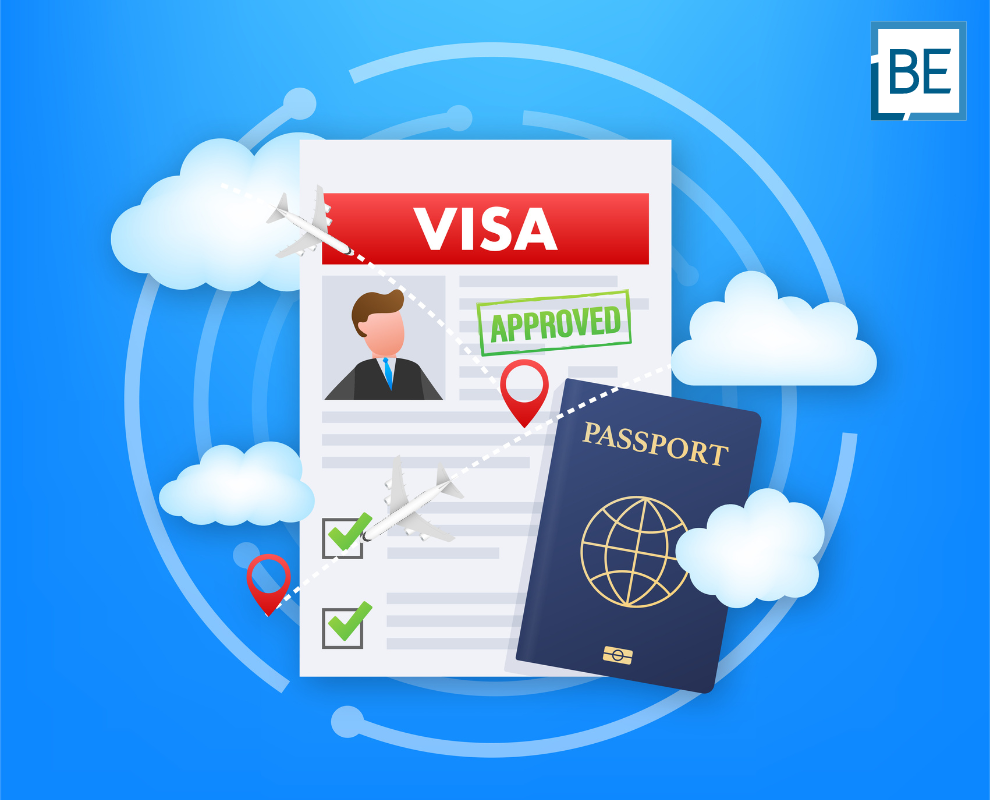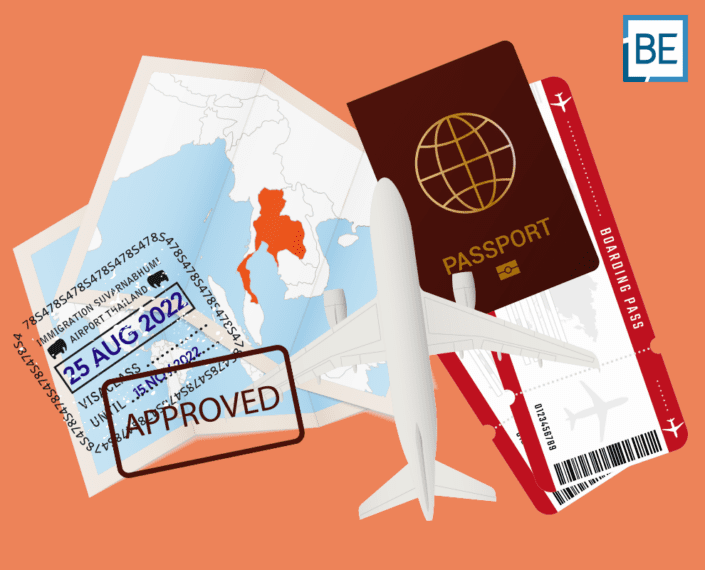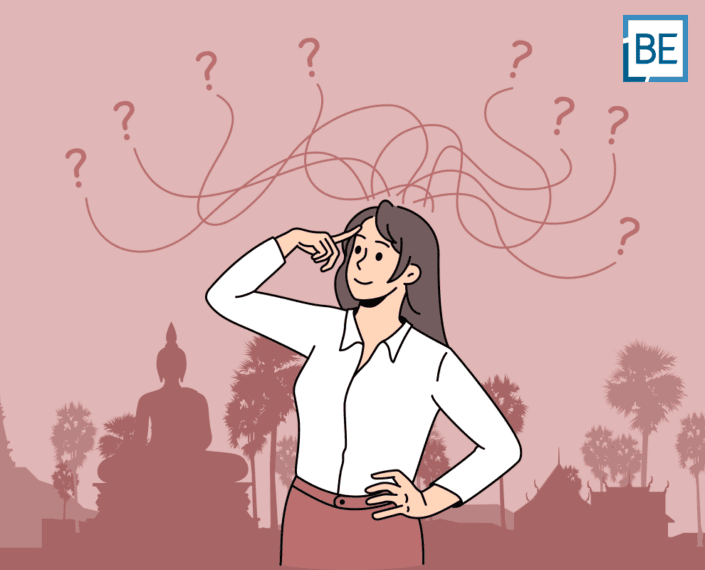Belaws Home ›› Thailand ›› Blog ›› New Relaxated Measures Introduced for the Long-Term Resident Visa
legal
New Relaxated Measures Introduced for the Long-Term Resident Visa
22/03/2023
The Ministry of Labor in Thailand recently introduced some updates to the Long-Term Resident (LTR) visa. These updates are aimed at streamlining the application process for the LTR visa and making it more convenient for eligible applicants.
The changes include new relaxation measures for certain applicants and updated eligibility requirements and application procedures. In this context, it is important for individuals considering applying for an LTR visa to be aware of the new updates and how they may affect their application.
Key points
- The amendment removes the need for high-potential applicants (and their spouses) to provide a medical certificate when applying for an LTR visa.
- Holders of an LTR visa will be eligible for attractive benefits, including A discounted PIT rate, a Digital Work Permit, and reduced requirements for hiring foreign staff in Thailand.
- Ten years visa for Thailand.
- Holders can also support a visa for dependents.
What are the new measures?
As of February 1st, 2023, the Ministry of Labor’s Notice on special cases for foreign workers in Thailand has gone into effect. This amendment waives the previous requirement for a medical certificate stating the absence of prohibited diseases for foreigners and their spouses seeking a Long-Term Resident Visa (LTR).
This amendment applies to high-potential applicants capable of stimulating the country’s economy.
What is the LTR visa?
The Long-Term Resident Visa (LTR) is a visa issued by the Thai government that allows foreign nationals to reside in Thailand for an extended period. This visa is intended to attract high-value individuals who wish to stay in the country for an extended period for various reasons, such as work, retirement, and stimulating the Thai economy.
The LTR visa is issued for up to ten years and is renewable. The visa holder is permitted to work or engage in business activities in Thailand but must obtain a work permit or business visa extension from the Thai immigration authorities.
The eligibility requirements for the LTR visa vary depending on the purpose of the applicant’s stay and nationality. Applicants must demonstrate financial stability, a clear criminal record, and a valid reason to stay in Thailand.
Who can apply for an LTR visa?
Foreign nationals who wish to stay in Thailand for an extended period of time can apply for a Long-Term Resident Visa (LTR). However, the eligibility requirements for an LTR visa vary depending on the purpose of the applicant’s stay and nationality.
The LTR is designed to attract high-potential foreigners to Thailand. For this visa, high-potential foreigners are divided into four groups:
- Rich global citizens
- Wealthy retirees
- Professionals working in Thailand
- Highly skilled workers
Rich global citizens
Qualifying individuals must have invested at least USD 500,000 in Thai property, Thai government bonds, or Foreign Direct Investment (FDI).
People who have earned at least USD 80,000 over the past 2 years and own a minimum of USD 1,000,000 in assets are also eligible for the LTV.
Wealthy retirees
Qualifying individuals must have invested a minimum of USD 250,000 in Thai property or Thai government bonds. Additionally, they must have an annual pension of at least USD 40,000.
Applicants with a minimum annual pension of USD 80,000 are also eligible for the LTR.
Professionals working in Thailand
Professionals Working in Thailand are broken down into two categories. Applicants from both categories must have earned a minimum of USD 80,000 over the past 2 years. However, individuals in category 1 must hold intellectual property rights, while those in category 2 must hold a class-A scholarship and have completed 5 years of research.
Highly skilled workers
Qualifying individuals must have earned at least USD 80,000 over the past two years. Individuals who hold a Master’s Degree with relevant work experience in a target industry are also included in this class.
What are the benefits of the Thailand LTR Visa?
Holders of an LTR visa are eligible for numerous benefits that make a living in Thailand easier and less bureaucratic.
These privileges include the following:
A discounted personal income tax rate
Holders of the LTR visa can take advantage of a special Personal Income Tax (PIT) rate of 17%. PIT is taxed progressively (from 5 to 35%).
This benefits ‘Highly Skilled’ professionals (whom the LTR targets) who will usually be taxed at a higher progressive rate. Therefore, this reduced PIT rate could result in significant tax savings for the holder.
Permission to work in Thailand
Holders of the LTR will be eligible to receive a Digital Work Permit. This is a significant attraction for those who wish to come to Thailand as a Digital Nomad and work legally. This is currently not possible through the existing visas on offer.
The removal of the requirement for employers to hire four Thai citizens per foreigner
Setting up a company in Thailand would be an attractive option for holders of an LTR who applied under the ‘Work From Thailand’ or ‘Highly Skilled Professionals’ options.
Private Limited Companies in Thailand are subject to restrictions on hiring foreign staff. Typically, you must hire 4 Thai employees for each foreign staff member. This quota does not apply to LTR visa holders.
Fast track at international airports
LTR visa holders can take advantage of the fast-track services available to travelers at Thai airports and avoid the often long and slow lines.
1 year reporting to Immigration instead of 90 days
Most visa holders in Thailand must submit a notification of their place of residence to the Thai Immigration Office every 90 days.
This is not required for holders of the LTR, who only need to do this report once per year.
How can Belaws help?
If you have a question about an LTR visa in Thailand, please speak directly with one of our experts.
You can browse our visa services here.
To provide the most accurate and reliable advice for your needs, Thai Visa Belaws offers a visa Consultation Service with our visa expert.
This article is for information purposes only and does not constitute legal advice.
Our consultations last for a period of up to 1 hour and are conducted by expert Lawyers who are fluent in English, French and Thai.
Consultations can be hosted via WhatsApp or Video Conferencing software for your convenience. A consultation with one of our legal experts is undoubtedly the best way to get all the information you need and answer any questions you may have about your new business or project.
USD 150
Up to 1 hour
Online payment (Paypal or Credit card)
Legal consultation can be conducted in English, French or Thai
Legal consultations are handled by experienced lawyers from the relevant fields of practice
Frequently asked questions
How do I get a long term visa for Thailand?
To obtain a Long-Term Resident (LTR) visa in Thailand, eligible applicants must submit an application to the Thai immigration authorities. The eligibility requirements for the LTR visa vary depending on the purpose of the applicant’s stay and nationality. Applicants must demonstrate financial stability, a clear criminal record, and a valid reason to stay in Thailand.
What is long term residency visa in Thailand?
The Long-Term Resident (LTR) visa is a visa issued by the Thai government that allows foreign nationals to reside in Thailand for an extended period. This visa is intended to attract high-value individuals who wish to stay in the country for an extended period for various reasons, such as work, retirement, and stimulating the Thai economy. The LTR visa is issued for up to ten years and is renewable.
How can a foreigner get permanent residency in Thailand?
Foreigners can obtain permanent residency in Thailand through the Board of Investment (BOI) or through a work permit or investment visa. The eligibility requirements for permanent residency in Thailand vary depending on the applicant’s circumstances and nationality.
Can you get a 5 year visa for Thailand?
The Long-Term Resident (LTR) visa in Thailand is issued for up to ten years and is renewable. However, there is no specific visa issued for a period of five years.
How much does it cost to get permanent residency in Thailand?
The cost of obtaining permanent residency in Thailand varies depending on the applicant’s circumstances and nationality. The application fee for permanent residency in Thailand is THB 7,600 (approximately USD 230).
How do I get a 10 year Thai visa?
To obtain a 10-year visa in Thailand, eligible applicants must apply for a Long-Term Resident (LTR) visa. The LTR visa is issued for up to ten years and is renewable.
How much is a 10 year visa in Thailand?
The cost of obtaining a 10-year visa in Thailand varies depending on the applicant’s circumstances and nationality. However, the application fee for the Long-Term Resident (LTR) visa is THB 10,000 (approximately USD 300).
How much is a 1 year retirement visa in Thailand?
The cost of obtaining a 1-year retirement visa in Thailand varies depending on the applicant’s circumstances and nationality. However, the application fee for a retirement visa is THB 2,000 (approximately USD 60).
What is the difference between long-term visa and long-term residence?
A long-term visa is a type of visa that allows foreign nationals to stay in a country for an extended period. A long-term residence, on the other hand, refers to a legal status that allows foreign nationals to reside in a country for an extended period, typically without the need to renew a visa.
Can I live on $3000 a month in Thailand?
Yes, it is possible to live on $3000 a month in Thailand. The cost of living in Thailand is relatively low compared to many other countries. However, the cost of living can vary depending on the location, lifestyle, and personal preferences of the individual.
Related articles
Subscribe today
Subscribe today
To our newsletter for all the latest legal news
in South East Asia, Belaws updates and
special promotions on our services.
To our newsletter today for all the latest legal news in South East Asia,
Belaws updates and special promotions on our services.







